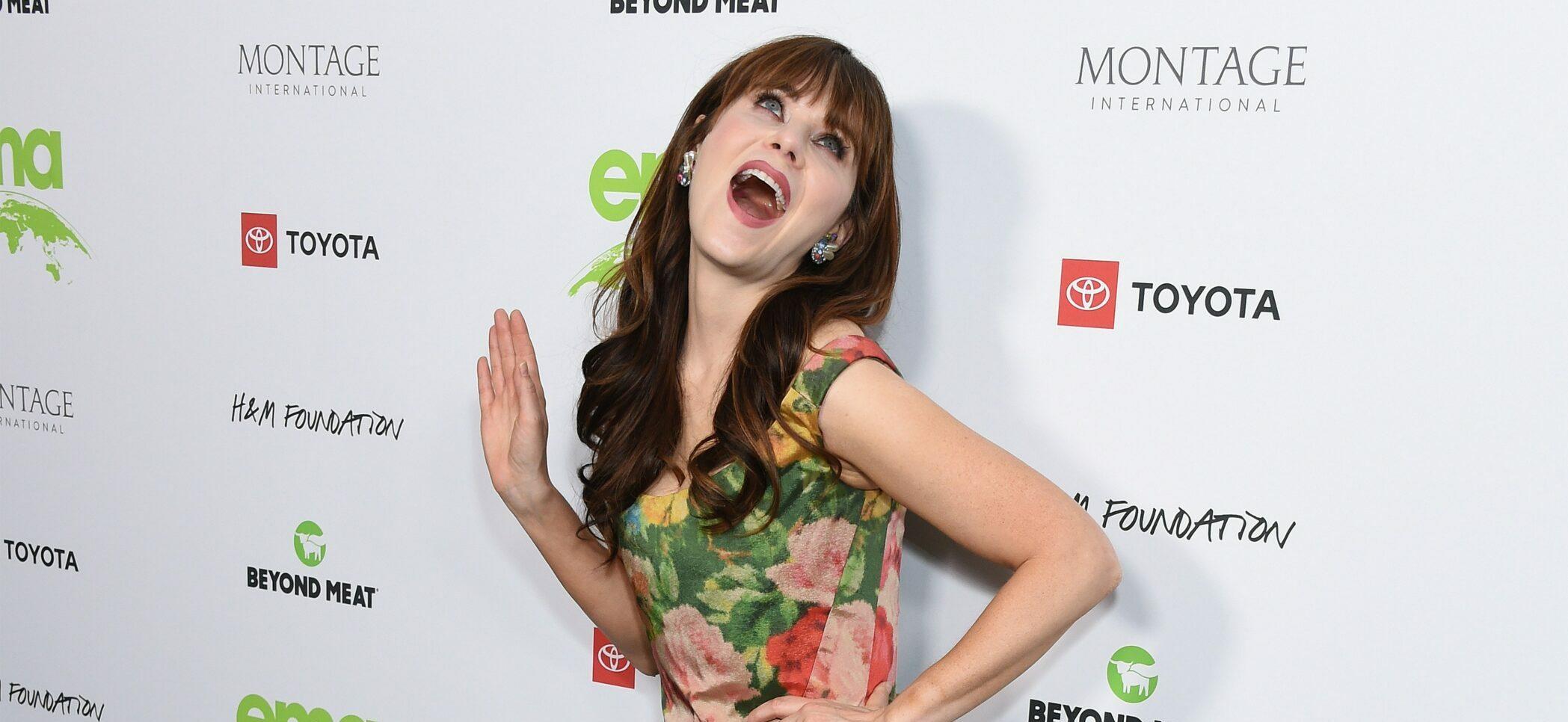Zooey Deschanel Wants To Shed THIS 'One-Dimensional' Stereotype About Her Career
By Taylor Hodgkins on July 30, 2022 at 11:00 AM EDT

Who's that girl? No, it isn't Jess from "New Girl" or Summer from the 2009 cult film "500 Days Of Summer."
She's Zooey Deschanel, and she's ready to be seen for the multi-faceted artist she is.
The 42-year-old actress and musician has been in the public eye for over two decades.
Despite Deschanel's expansive body of work, it is rare that any mention of her name in media isn't followed by a familiar phrase: The manic pixie dream girl.
The stereotype has been a popular culture fixture for many years, and its presence has often been used as a way to typecast the artists or elements of pop culture that are classified as having 'manic pixie dream girl' elements or are enjoyed by popular culture consumers who appear to fit the stereotype; these fans are often women in their twenties and have a similar style to Deschanel's.
Deschanel is well-aware that she has been portrayed as a manic pixie dream girl in the media for many years, and she wants to separate herself from the label once and for all.
What Is A 'Manic Pixie Dream Girl?'
View this post on Instagram
The label, which has been frequently used to describe Deschanel's signature sense of style or the personality traits of her signature characters, often holds negative connotations.
Urban Dictionary defines the phrase as "A pretty, outgoing whacky female romantic lead whose sole purpose is to help broody male characters lighten up and enjoy their lives."
According to The Atlantic's 2013 piece on manic pixie dream girls, the phrase was originally "coined by critic Nathan Rabin," and used in reference to Kirsten Dunst's character in 2005's "Elizabethtown."
The piece goes on to explain Rabin defined 'manic pixie dream girl' in his review of the film as being a stereotype that only "exists solely in the fevered imaginations of sensitive writer-directors to teach broodingly soulful young men to embrace life and its infinite mysteries." Urban Dictionary also echos this definition.
This conjured fantasy has often posed consequences, an idea supported by Laurie Penny in her piece for New Statesman, written the same year.
In Penny's essay per The Atlantic, she detailed, "Men grow up to be the hero of their own story," while "Women grow up expecting to be the supporting actress in someone else's."
Deschanel Is Ready To Be Seen As The Lead In Her Career
View this post on Instagram
A monologue from Deschanel's Jess Day, the character she played on "New Girl" from 2011 until 2018, is used as an example to illustrate the manic pixie dream girl in TV Troupe.com's entry about the stereotype.
The monologue, which Jess delivered in an early episode of the series after she confronts a woman who is dating her roommate Nick Miller, who takes issue with Jess' bubbly personality and optimistic outlook on life.
"I break for birds! I rock a lot of polka-dots! I have touched glitter in the last 24 hours," she passionately exclaims while continuing to rattle off aspects of her personality that mirror the stereotype. She finally catches her breath and collects her bearings and adds, "I'm sorry I don't talk like Murphy Brown! And I hate your pantsuit! I wish it had ribbons or something to make it slightly cuter!"
Deschanel, for her part, does not need those accessories to survive in the public eye.
Of the label that has followed her throughout her career, Deschanel told The Guardian, "It's a way of making a woman one-dimensional, and I am not one-dimensional." She also told the publication the label does not "hurt [her] feelings," and furthermore, she feels the label is not an accurate representation of who she is as a person.
"I don't feel it's accurate," she says, "I'm not a girl. I'm a woman."
Deschanel and her musical partner in She and Him have just released an album celebrating the work of The Beach Boys and Brian Wilson.
The "Stay Awhile" singer and her bandmate, M.Ward, went through The Beach Boys catalog in an effort to choose the final songs on the record "by sending songs back and forth, and digging into the melancholy side, which is a wonderful contrast to how people perceive the Beach Boys." (via The Guardian)